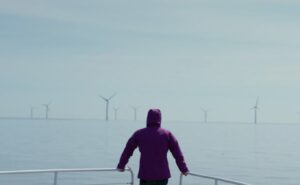A Central Queensland University (CQU) research team that is converting waste grease and oil into biodiesel has attracted the attention of an international oil major, ahead of plans to go into commercial production some time this year.
ABC Online reports that the team of teachers and students from the Mackay CQU campus have come up with a cheap and easy way to make a renewable biodiesel, by putting used cooking oil into a filter tank and then passing it through a centrifuge. The oil is then heated and cleaned, and some additives are put in.
According to UCQ fabrication teacher Paul Kelly, the process takes just five minutes to chemically change cooking oil into biodiesel, and costs 30 cents to make a litre of

fuel.
Meanwhile, the team – in which the average age of the students is just 16 years – has also spent the past five years building a pilot plant to test the production of the biofuel at scale; a project that has caught the attention of industry, and major fuel company Caltex.
Vocational Trades and Engineering dean Stephen Bird told the ABC that very serious talks were underway between the University and Caltex, and that the oil company was testing the fuel at laboratories in Melbourne and Brisbane.
The hope is that the first CQU blend could be fuelling vehicles later this year. But there is a way to go yet.
“This plant hasn’t fully been tested for its capacity yet,” said Kelly. “Figures are millions of litres per year.
“We’re extremely committed to getting this to the commercial stage.
“This is a pioneering project. We’re breaking new ground, making new connections with industry, and we’ve got a very bright future.”
As the ABC notes, a biofuels mandate is set to come into effect in Queensland in mid-2017 that will mean 3 per cent of unleaded fuel and 0.5 per cent of diesel being sold must come from renewable sources.
Kelly said the fuel that was being produced by CQU could already be used to power diesel engines, but the team was still waiting on final Australian Fuels Certification.
“This is a common sense way to clean up the environment and turn a waste product into low-carbon diesel.”








